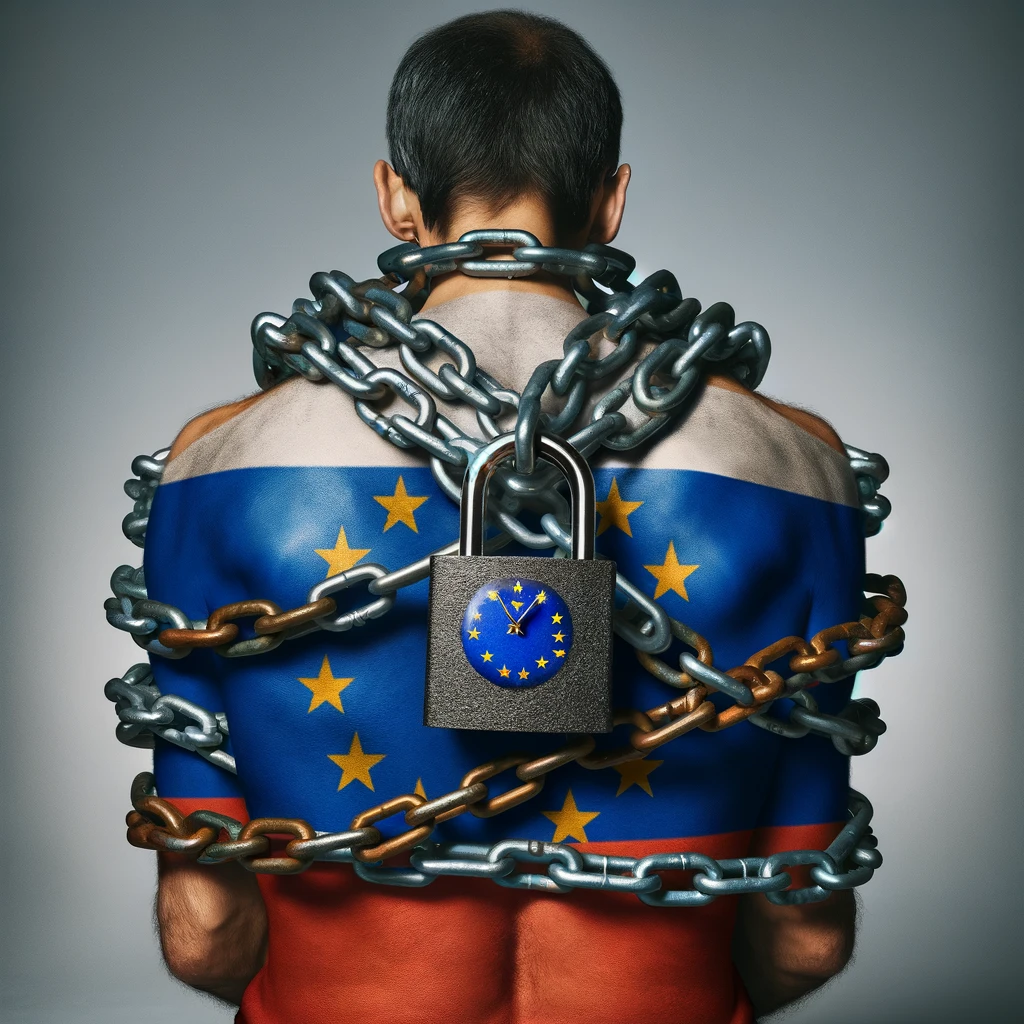The European Union’s 13th round of sanctions against Russia, in response to the ongoing conflict in Ukraine, marks a significant escalation in the bloc’s efforts to curb Moscow’s military capabilities and economic strength. These sanctions, aimed at hitting Russia’s economy hard, have both immediate and long-term implications for the global economic landscape, Russia’s strategic maneuvers, and the efficacy of sanctions as a tool of international diplomacy.
Scope of Sanctions by European Union
Since the onset of the conflict in February 2022, the EU has systematically targeted a wide array of Russian imports and exports. The sanctions have not only focused on luxury goods and technology that cater to the elite but also on critical sectors such as energy, metals, and financial transactions. By banning imports worth approximately €91.2 billion and exports valued at over €43.9 billion, the EU aims to sever crucial revenue streams for Russia, particularly those funding its military operations.
The EU’s strategic ban on luxury goods, alongside significant restrictions on technological exports, including microchips, drones, and aircraft components, intends to degrade Russia’s technological and industrial capabilities. Simultaneously, the import bans targeting coal, gold, and most importantly, crude oil and refined petroleum products, seek to cut off a major source of financial inflow to the Kremlin, which has historically relied on its vast energy reserves as a key economic pillar.
Russia’s Utilization of BRICS to Counteract Sanctions
In the face of escalating Western sanctions, Russia has turned to its BRICS partners (Brazil, India, China, and South Africa) to mitigate the economic blow. The BRICS bloc, representing a significant portion of the global economy, has provided Russia with alternative markets and financial systems less reliant on Western institutions. This shift towards de-dollarization and increased transactions in local currencies within the BRICS framework reflects a strategic move to insulate Russia from the full impact of sanctions. Increased energy exports to India and China, along with collaborative efforts to enhance the role of national currencies in trade, underscore Russia’s pivot towards a multipolar economic order that challenges the dominance of Western financial mechanisms.
Impact on the Russian Economy
Despite the comprehensive scope of sanctions, the Russian economy has shown resilience in certain sectors, particularly in defense. The surge in government spending on defense and internal security has not only bolstered Russia’s military capabilities but also spurred growth in related industrial sectors. However, this militarization comes at the expense of other areas of the economy, with increased allocations to defense necessitating cuts in public spending elsewhere.
The reliance on fossil fuel exports continues to be a double-edged sword for Russia. While sanctions and price caps have introduced new challenges, Russia’s ability to redirect its oil and gas supplies to alternative markets has provided a financial lifeline, enabling the Kremlin to sustain its military and security expenditures. Nevertheless, the long-term sustainability of this strategy remains uncertain, as global energy markets adjust and the international community seeks to reduce dependence on Russian energy.
Concluding Thoughts
The effectiveness of sanctions as a policy tool is complex and multifaceted. While they undoubtedly impose economic costs on the target nation, their impact on changing state behavior is less clear. Sanctions can lead to unintended economic hardships for both the imposing countries and global markets, underscoring the need for a nuanced approach that balances punitive measures with diplomatic efforts. The evolving dynamics of the Russia-Ukraine conflict and the international response will continue to test the limits and potential of sanctions in the realm of global politics.
As the situation develops, the global community remains divided on the efficacy of sanctions. Some argue that they represent a necessary stance against aggression, while others point to the resilience of the Russian economy and the strategic realignments as evidence of their limitations. The debate over sanctions’ effectiveness and the search for alternative strategies to resolve the conflict will likely persist as the geopolitical landscape continues to evolve.

